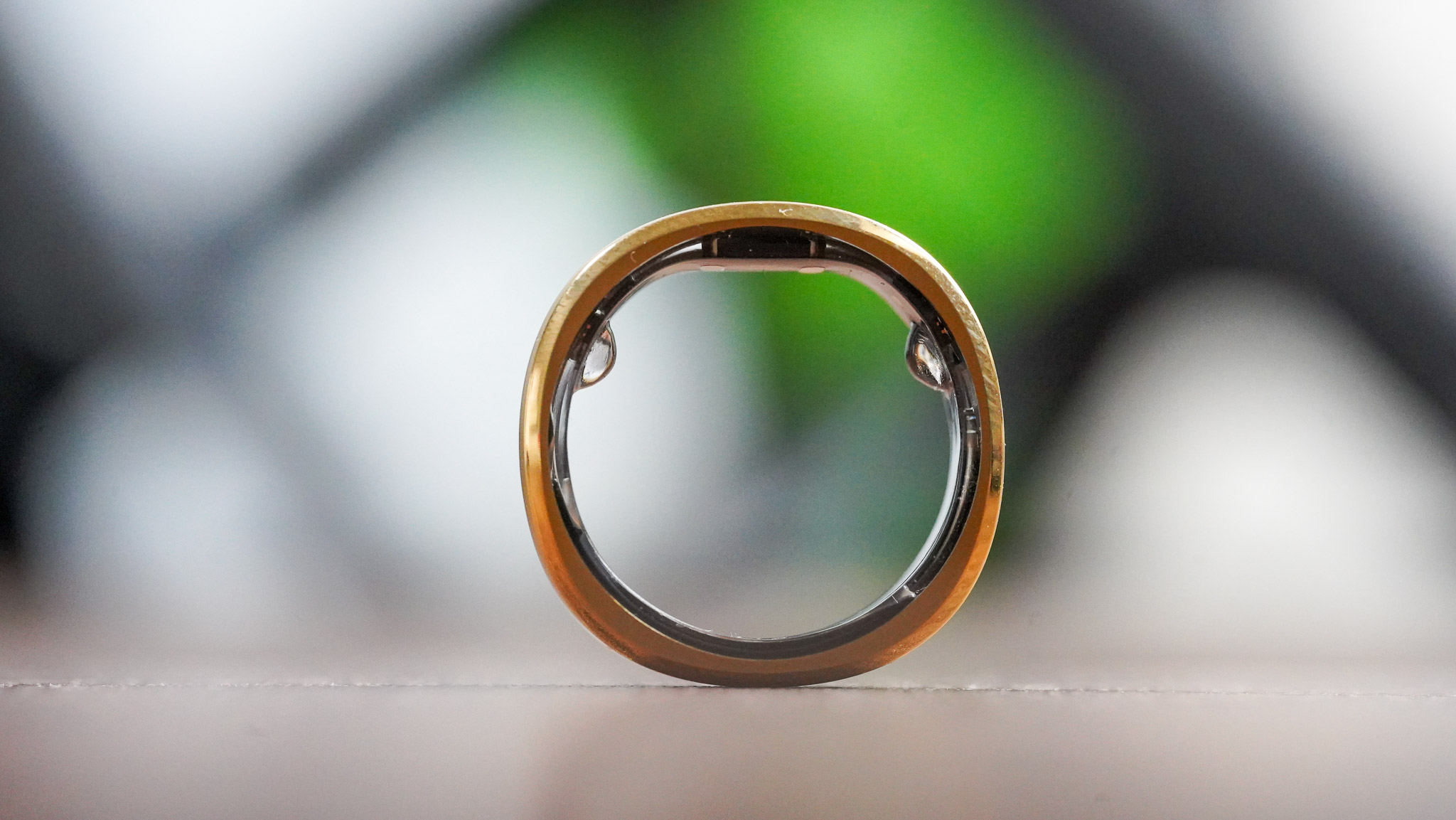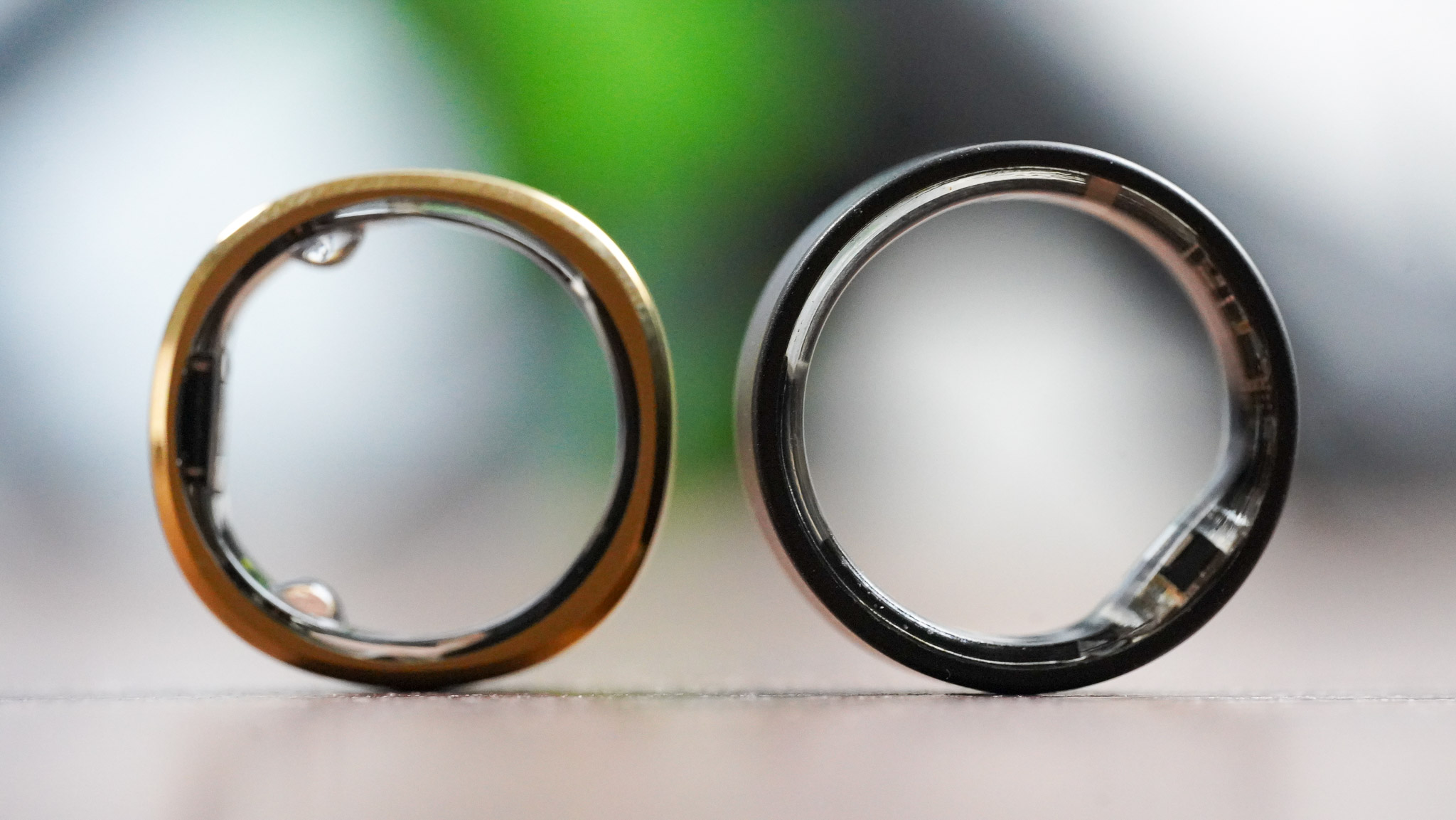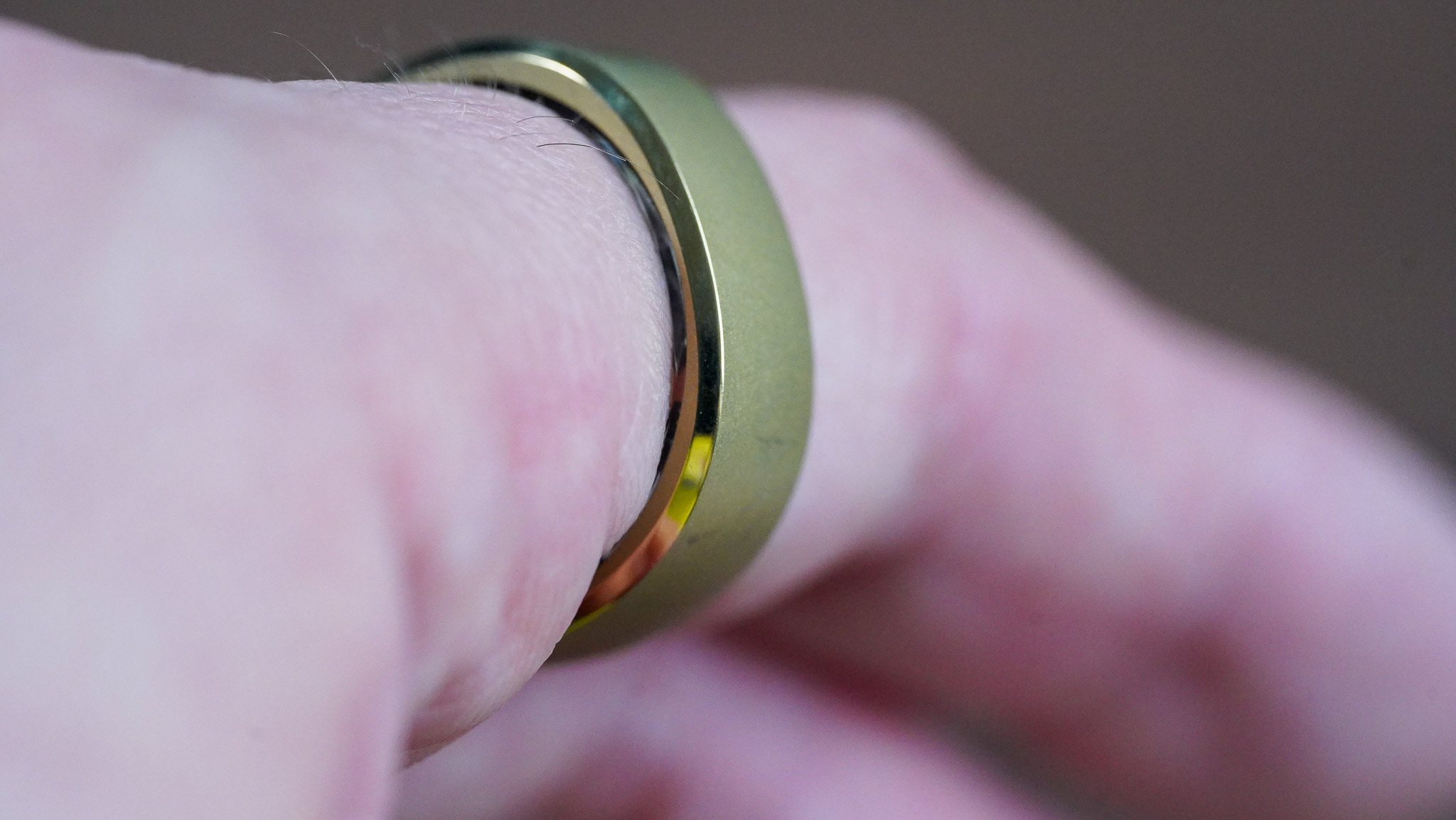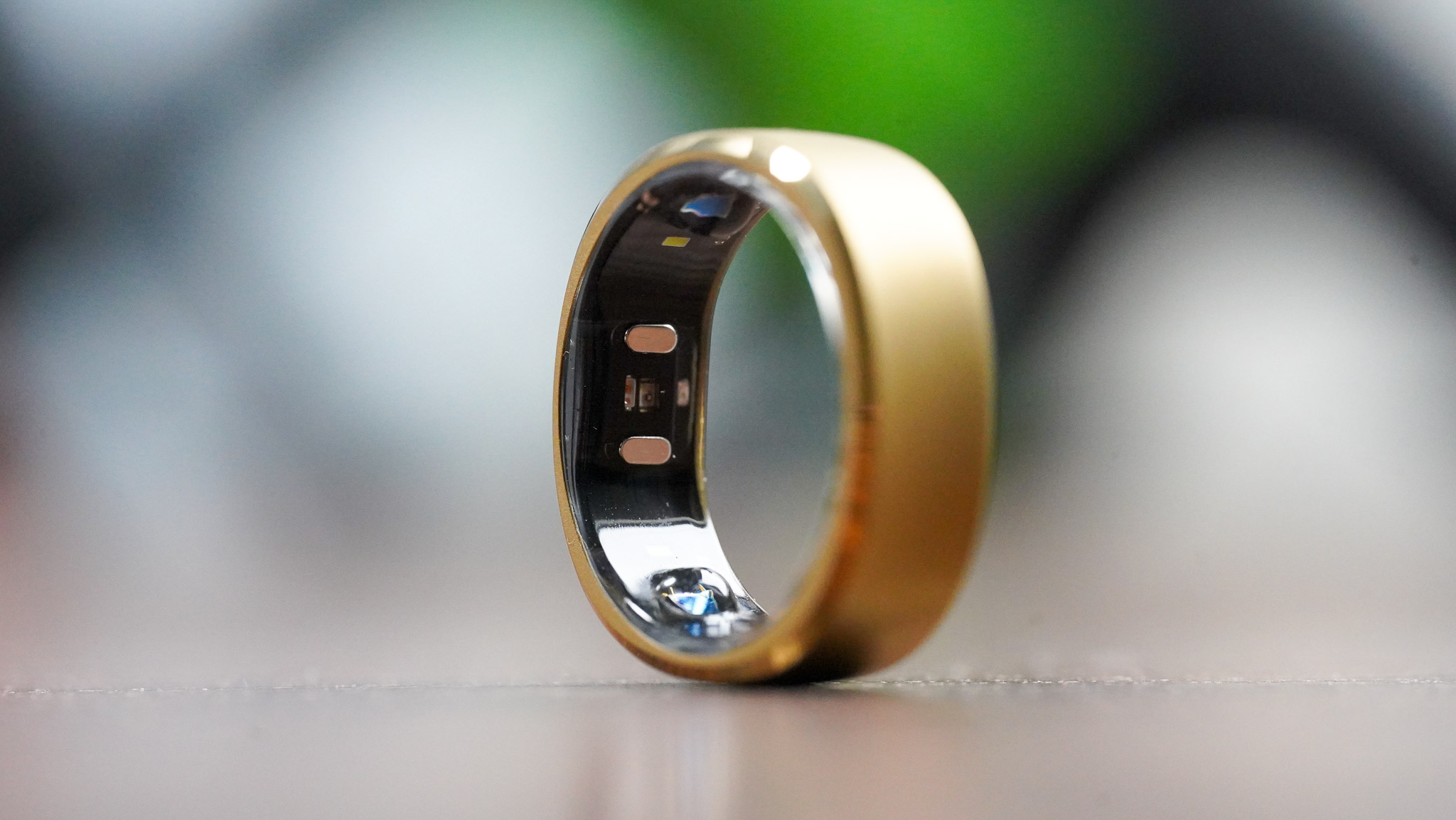RingConn Smart Ring review: keeping things simple
RingConn's Smart Ring is a lightweight, durable wearable that does the basics right


The Ringconn Smart Ring is an ideal wearable for those interested in keeping track of their key vital stats, sleep and stress. Its no-frills approach might appeal to those who find advanced health metrics and suggestions overwhelming. However, it shouldn't be your first choice if you're keen on tracking specific fitness activities.
-
+
Spot-on health tracking
-
+
Long battery life (plus cable-free charging case)
-
+
Good sleep and stress insights
-
+
Some gamification to improve habit building process
-
+
Ringconn app provides an easy-to-understand overview of your key stats
-
+
Ring connects to smartphone quickly
-
-
Doesn't automatically recognise exercise
-
-
Health Timeline feature could provide more information
-
-
LEDs are almost bright enough to be used as flashlights
Why you can trust T3

I often research products before I request review samples, which is what happened before I started writing this RingConn Smart Ring review. Many reviewers said it's a cheap smart ring, giving me the impression that the RingConn Smart Ring will cut some corners, as affordable wearables often do.
After testing it for a few weeks over the festive period, I'm happy to report that the RingConn Smart Ring feels anything but cheap – in fact, it's a very decent fitness tracker. Better still, and similarly to the Ultrahuman Ring Air, you don't need to pay any subscription fees to access your health data via the Ringconn app!
Smart rings are not only all the rage these days, but the market is getting more saturated. Ringconn is already facing pretty steep competition in the form of the Oura Ring, Circular Ring Slim, the aforementioned Ultrahuman Smart Ring and more. Not to mention the upcoming smart rings from big-ticket brands such as the Samsung Galaxy Ring and the rumoured Apple Smart Ring.
Is the Ringconn Smart Ring worth the price, or are you better off biding your time until Apple launches its smart finger wearable? Let's find out!
RingConn Smart Ring review
RingConn Smart Ring review: price and avalability

Having garnered quite a success on Indiegogo last year – raising $1.3M in funding worldwide – the RingConn Smart Ring is now available at $279 at RingConn's official website (approx. £220.81/ AU$ 411.32). It's available in three colours: Moonlit Silver, Midnight Black and Pale Gold.
The Ringconn Smart Ring comes in nine sizes (6-14). However, the sizes differ slightly from the US standard. If you're unsure about your size, you can order a free sizing kit by selecting the 'Don't Know My Size' option at the checkout.
In the box, you'll find a Quick Guide, an Instructions Manual, a Portable Charging Case, a USB-C Cable and the RingConn Smart Ring. The box is compact and has a solid feel to it. Plus, there is a poem of some sort on the card inside the box, which is slightly strange – certainly a unique touch.
Get all the latest news, reviews, deals and buying guides on gorgeous tech, home and active products from the T3 experts
I initially went with the same size as my usual ring size but needed to size up after realising it was too tight. I tested the Pale Gold version of the Ringconn Smart Ring, which is functionally the same as all other colours.
RingConn Smart Ring review: specifications

- Battery life: up to 7 days
- Material: Titanium
- Subscription: Free
- Weight: 3-5g (depending on size)
- Width: 7.8mm
- Thickness: 2.6mm
- Water resistance: IP68 rated (50m/165ft)
- Charging case: 500mAh/ up to 150 days of use
- Sensors: 3D Accelerometer, Temperature Sensor, PPG Sensor
- Connectivity: Low Power Bluetooth Module
RingConn Smart Ring review: design and build quality

Left: Ringconn Smart ring, right: Ultrahuman Ring Air
If you think it's hard to make the best smartwatches look different, try designing a smart ring with no display, strap, or any other feature that might help distinguish one from the rest of the lot. Ringconn tried getting around this issue by making its ring squarer.
The Ringconn Smart Ring fits nicely on my index finger – Ringconn recommends wearing the ring on this finger – dispute my initial concerns about its shape. There are two protruding bits on the inside, similar to Oura's design, to ensure the LEDs are always as close to the skin as possible (at least, I assume so).
Speaking of these, one night, I went to the bathroom to get some water and realised that the LEDs were bright enough to be used as a faint flashlight. I felt like Iron Man, holding my hand out with my palm facing away, trying to locate the door handle. Not the most subtle feature, but I didn't find it too distracting for sleeping.

The Ringconn Smart Ring is said to be made of titanium and weighs very little, only 3-5 grams, depending on the size (my size 11 weighed around 4 grams). It has a width of 7.8 mm and a thickness of 2.6mm. The Ringconn Smart Ring is IP68-rated, the highest ingress protection rating for non-commercial products.
It's more or less the same size as the Ultrahuman Ring Air, but unlike that, Ringconn's device seems less prone to scratching. It's light enough to be forgotten once the ring is on your finger.
One of my favourite features of the Ringconn Smart Ring is its charging case. Unlike Ultrahuman's cabled version, Ringconn uses a clamshell-type charger that can be used on the go. The ring's battery life is around seven days, which, in my experience, is a fair estimation; using the charging case, you can push the battery life up to 150 days without a charging cable – pretty impressive.
RingConn Smart Ring review: features

Ringconn is to smart rings as fitness trackers are to smart wrist wearables. It tracks the basics, including heart rate, heart rate variability, blood oxygen saturation and steps (movement). It's an excellent sleep tracker that assesses overall activity and stress levels.
What it can't do is recognise different types of exercises like a running watch. The Ringconn Smart Ring will be able to tell that you moved around, but it won't be able to tell the difference between a walk, football session or a run. As such, it can only give you information, such as your Activity Score (a bit of gamification there), steps taken (comparatively accurate), calories burned, and so on.
Smart rings are often used as sleep trackers, and the Ringconn Smart Ring does an excellent job of monitoring your slumber – it's probably one of the most robust features of the ring. It gives you a Sleep Score (more gamification) and provides what Ringcoon calls a Sleep Factor Analysis and Sleep Stages breakdown. The Ringconn Smart ring can also detect naps automatically.
The wearable's ability to monitor stress is equally as impressive. You receive not just an All-Day Stress Index but also a breakdown of stress levels throughout the day.
The Ringconn app, which I found decent enough, gives you a Wellness Balance graph based on all the above factors (vital signs, activity, sleep and stress). Yesterday's performance is measured against the average of the last seven days, which is a nice way to see where you're at from a health and wellness point of view.
RingConn Smart Ring review: health and fitness tracking

Often, wearables need time to assess baseline performance, but the Ringconn Smart Ring provided me with all the details it can provide from day one. Granted, it's probably due to the limited functionality. Which, I'm sure, will be welcomed by some people who find Garmin watches too complicated.
Sleep tracking, in particular, was super accurate. I measured it against the performance of the Apple Watch Ultra 2, which is my primary wearable these days and has a fine-tuned sleep-tracking algorithm, and they both showed me the same stats – excellent!
I found the Ringconn Smart Rings' stress-tracking feature particularly eye-opening. My stress level seemingly went up before sleep – it climbs steadily throughout the day – which was a strange revelation, as I usually don't do anything too stressful at that time of the day.

General activity tracking is okay, although it is far from inspirational. The Ringconn Smart Ring tracks heart rate, heart rate variability, and steps and creates an overall activity level score, but it doesn't recognise workouts.
For example, after I went for a run, the Ringconn app said I had a higher-than-usual heart rate roughly around the time I started running. Clearly, the algorithm didn't connect the dots by realising that the higher heart rate was the beginning of the run.
One feature I find redundant in its current state is Health Timeline. This should mark milestones during the day, like when you hit your calorie or step goals for the day. However, the timeline looks relatively sparse since the Ringconn algorithm only tracks basic stats. Plus, it's not like you have the app open all day, so a reminder on the timeline to relax because your high stress level is less than helpful when seen the day after.
You can, of course, also add your own notes, which is what most smart rings do (e.g. tell the algorithm you went for a run). This allows you to mark specific segments of the day, but from what I can tell, it doesn't really change anything in how the app perceives the activities.
RingConn Smart Ring review: verdict

Is the Ringconn Smart Ring a 'cheap' wearable? It isn't. Not only does the term 'cheap' have a somewhat derogatory connotation, suggesting the product is not as well-rounded as others on the market, but in the case of the Ringconn Smart Ring, it's simply false, given the ring isn't at all more affordable than its competition.
There is no subscription fee, which is excellent; however, it's worth noting that the stats provided by the Ringconn Smart Ring aren't advanced (yet) to warrant an access fee. In comparison, Ultrahuman delivers a ton of personalised health insights, including recovery score, circadian rhythm assessment and automatic exercise recognition, using a free companion app model.
Does this make the Ringconn Smart Ring obsolete? No, the same way the best triathlon watches don't appeal to people who only need fitness trackers. If you're interested in keeping track of your key vital stats, sleep and stress, this ring can help without overwhelming you.
I'm sure once Ringconn collected enough (anonymous) health data to train its algorithm to perform more complex assessments, we'll see new features popping up in the app. Hopefully, Ringconn will keep things simple even then.
RingConn Smart Ring review: also consider
Your best Ringconn Smart Ring alternative is the Ultrahuman Ring Air, which I referenced many times in this review. It's slightly more expensive, has a subscription fee-free approach, and provides more in-depth suggestions. Otherwise, you're best off having a look around on T3's best fitness tracker guide. These are mostly wrist wearables but light enough to wear 24/7.

Matt Kollat is a journalist and content creator for T3.com and T3 Magazine, where he works as Active Editor. His areas of expertise include wearables, drones, action cameras, fitness equipment, nutrition and outdoor gear. He joined T3 in 2019.
His work has also appeared on TechRadar and Fit&Well, and he has collaborated with creators such as Garage Gym Reviews. Matt has served as a judge for multiple industry awards, including the ESSNAwards. When he isn’t running, cycling or testing new kit, he’s usually roaming the countryside with a camera or experimenting with new audio and video gear.